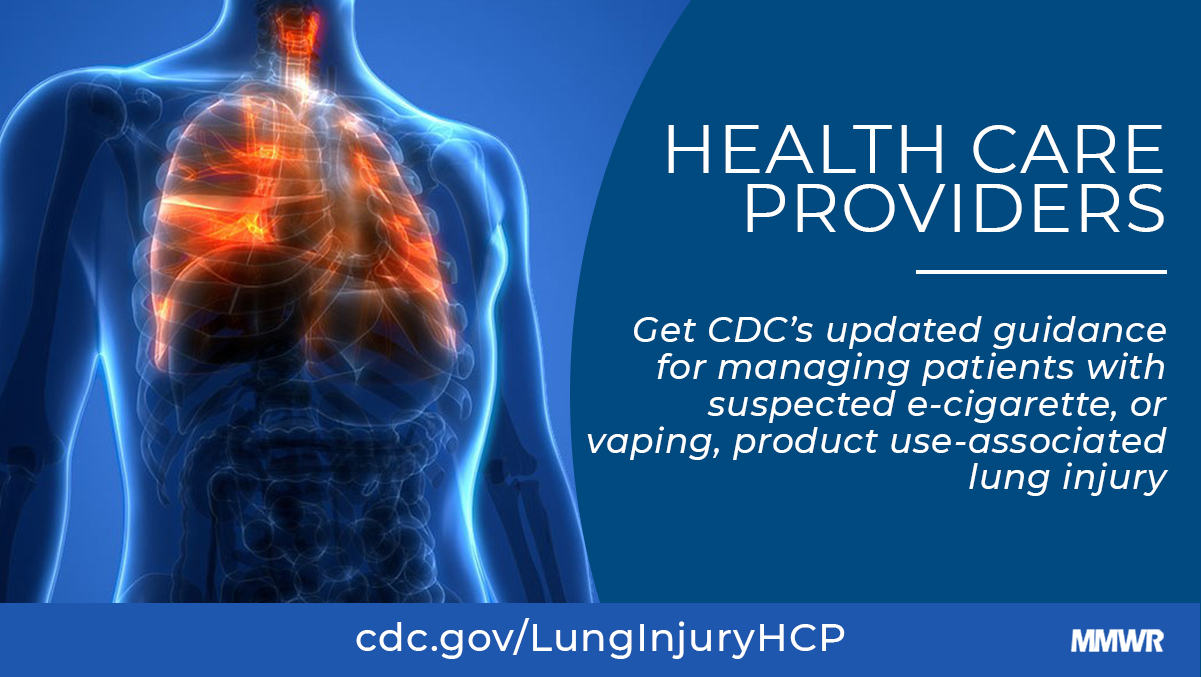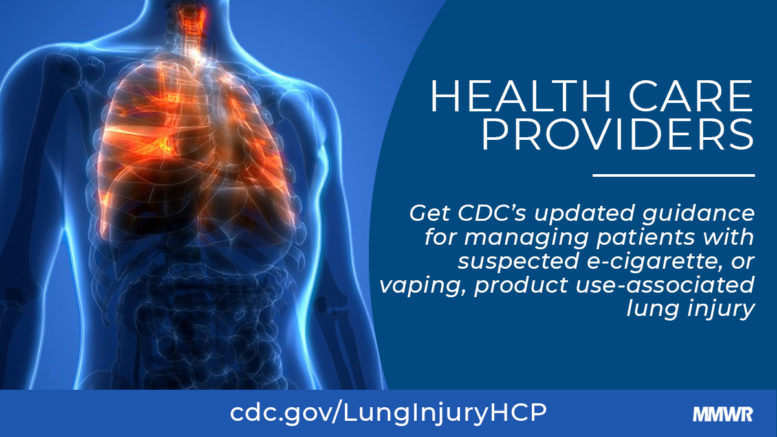
The Centers for Disease Control and Prevention (CDC) today released updated guidance for healthcare providers to help diagnose and treat patients with e-cigarette or vaping lung injury (EVALI). This updated guidance, published in Morbidity and Mortality Weekly Reports (MMWR), comes as the 2019-2020 influenza season approaches, when many patients may show up in outpatient clinics or hospitals with symptoms of respiratory illness.
This new guidance is an update to the clinical guidance CDC previously released in October 2019. “Clinicians serve a critical role in both identifying and treating patients with EVALI,” said CDC principal deputy director, Anne Schuchat, MD (RADM, USPHS, RET).
Key Recommendations from Updated Guidance
• Health care providers should ask patients with symptoms of respiratory or gastrointestinal illness, or other symptoms such as fever, chills or weight loss, about their use of e-cigarette, or vaping, products. They should evaluate patients with suspected EVALI according to previously published CDC recommendations.
• Not all patients with a history of e-cigarette or vaping, product use who present for evaluation of respiratory, gastrointestinal, or other symptoms require hospitalization. EVALI patients can be managed on an outpatient basis if they have normal levels of oxygen in their blood, no respiratory distress, no other health conditions that might compromise lung capacity, reliable access to health care should their symptoms worsen, and strong social support systems.
• Influenza testing should be strongly considered, especially during flu season. Health care providers should consider prescribing antiviral medications if clinically indicated.
• Corticosteroids can be considered for outpatients on a case-by-case basis, however, they should be used with caution in outpatients, because this treatment modality has not been well studied among outpatients, and corticosteroids could worsen respiratory infections.
• Treatment strategies such as behavioral counseling are recommended to help EVALI patients discontinue using e-cigarette, or vaping, products.
• Healthcare providers should emphasize the importance of annual flu vaccines for all patients 6 months of age or older, including patients at risk of EVALI.
Characteristics of non-hospitalized EVALI patients
This clinical guidance was released along with a second report in MMWR that provides new information about both hospitalized and non-hospitalized EVALI patients. The report found that as of November 5, 2019, among the 1,977 EVALI patients with available data on hospitalization status, 94% were hospitalized. Demographic characteristics were similar between hospitalized and non-hospitalized patients with most being male and under 35 years of age.
Both reports continue to reinforce key public health recommendations to prevent EVALI, which are based on epidemiologic, laboratory, and clinical data being analyzed by CDC.
Source: CDC

Be the first to comment on "CDC Updates EVALI Guidance for Healthcare Providers as Flu Activity Increases Nationally"